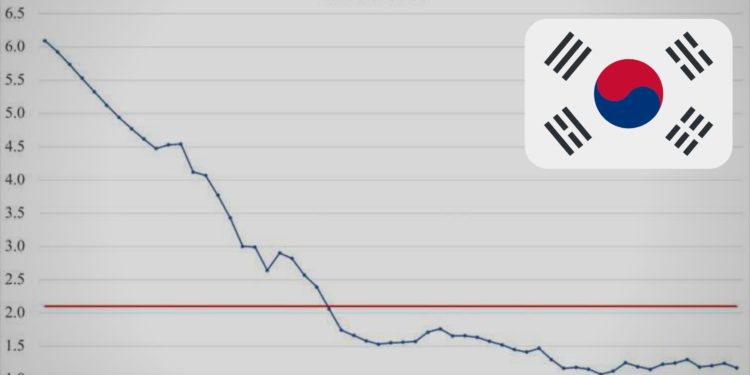South Korea has turned to the latest technology to fight the low birth rate in the country. With the help of big data and artificial intelligence, the country will be tackling fertility issues. Although the government adopted several measures to control the thinning population, the birth rate in the country has reached an extreme low. The new investment in the tech measures is a part of a project expected to control the situation.
The Ministry of Health and Welfare has gone beyond boundaries to research and develop tools and technology. The research projects will help support pregnancy planning and programs to control infertility. The new program will use artificial intelligence to effectively maneuver the infertility control program, according to Maeil Business Newspaper.
The project gives hope to couples facing infertility concerns since it studies successful pregnancies from similarly diagnosed couples. The AI will examine such pregnancies and contribute to developing machine learning with embryo conditions ideal for gestations.
If the idea becomes practicable, researchers will carry out and examine the program in some areas on a trial basis. If successful, the same will be implemented nationwide. Additionally, the program is expected to give personalization in its services as per the infertility issues.
While speaking to the media, the head of the fertility policy, Son Moon-keum expressed the difficulties and hurdles in examining pregnancy success in infertility cases. He referred to good embryos that are responsible for key pregnancy success in such cases.
“Analyzing actual infertility treatment data through AI is expected to provide optimum treatment scheme,” Moon-keum stated.
There are many reasons behind low birth rates in South Korea. Reduced number of marriages, hesitance in pregnancies, older age, to name a few. As a result, many women are considering fertility treatments for their first pregnancy.
In 2018, the government infertility medical support program helped around 2.8% of infants in the country. The number is around 8973 newborns, as per the Health Insurance Review & Assessment Service reports. The ratio has increased in the past three years to around 10.6%, with 28,699 infants in the country.
Infertility has been a great concern in the country, with around 16% of women diagnosed with infertility. While the number has reached around 228,696 women, the success ratio in the number is around 30-35% among the rest.
With government spending on AI-powered infertility treatment programs, the horrifying low birthrate in South Korea is expected to get under control in the near future.







